His dad died from listeria tied to Boar’s Head meat. He needed to share his story.
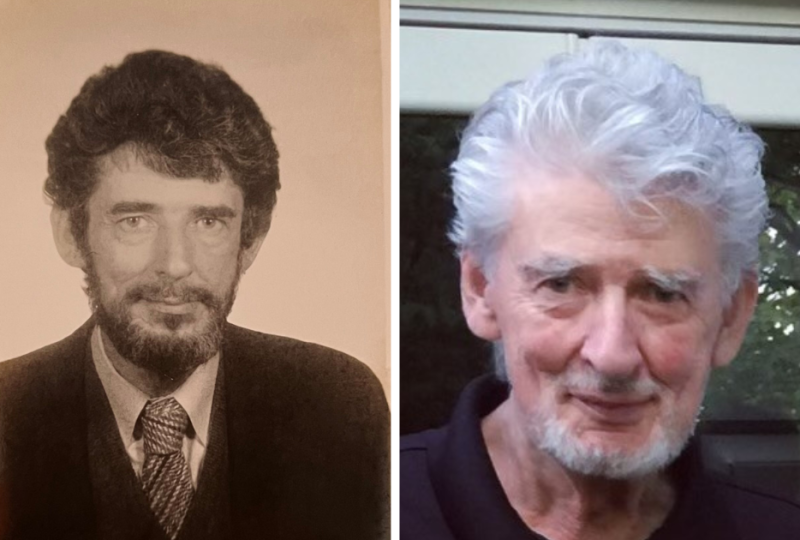
Correction: This story was updated to further clarify which Boar's Head products were recalled.
A Virginia family is remembering a beloved father, grandfather, community member, master hair designer and Holocaust survivor who they say died as a result of the ongoing listeria outbreak linked to Boar's Head deli meats.
The outbreak, first reported by the Centers for Disease Control (CDC) on July 19, has resulted in at least 43 illnesses and hospitalizations, including three deaths, across 13 states as of Aug. 8, according to the CDC investigation.
The spread of listeria has been connected to sliced deli meats distributed by the brand Boar's Head, which initially issued a recall for 207,528 pounds of its liverwurst on July 26. The company issued an expanded recall on July 30 to include every product made at the same facility where its liverwurst was produced, equating to about 7.2 million pounds.
U.S. health agencies including the CDC and U.S. Department of Agriculture (USDA) have been working in tandem with Boar's Head and other investigative agencies to determine the origins and scope of the outbreak.
On Aug. 8, the CDC reported a new death in an update on the investigation. This case, confirmed by the CDC as the third death in the outbreak, was that of Günter “Garshon” Morgenstein, an 88-year-old German native and pillar of his Newport News community. His family has spoken out to tell his story.
'His parents hid him under floorboards'

Morgenstein was born in Cottbus, Germany on June 29, 1936. Born to a Jewish family, he was forced to flee his native country as Nazi control over Germany grew.
"His parents hid him under floorboards," his son, Garshon "Shon" Morgenstein told USA TODAY.
Morgenstein was a Holocaust survivor, having escaped East Berlin with just the clothes on his back in 1954. From what his son could recall, not all of Morgenstein's family members made it out alive.
Morgenstein then traveled to Canada to meet up with his brother who had settled there ahead of him. He spoke no English at the time, he told the Oyster Point, a local newspaper in what would become his adopted hometown of Newport News, Virginia, in a 1999 article.
"My brother told me the only way I would learn English was not to hang around with Germans but instead to go to English versions of movies I had already seen in Germany and walk the streets trying to read the signs," he told the paper at the time. Evidently, the trick worked well.
A master stylist and master of his community
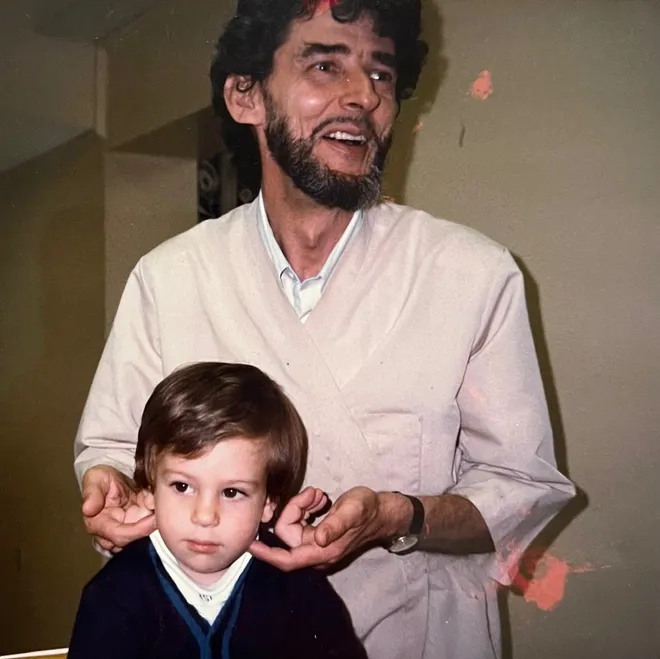
Morgenstein went on to build an over 70-year career in cosmetology, becoming a Master Hair Designer who worked with some of the most recognizable organizations in the biz, from Paul Mitchell to S&L. While still in Canada, he toured the country to teach at salons and speak at hair shows, spreading his motto of, "The cut, the chemistry and the design."
His training started long before his time working with the likes of Tom Jones, Johnny Mathis, Engelbert Humperdinck, Sly and the Family Stone and Muhammad Ali. In fact, he took his first job in a barber shop at around 13 or even younger, according to his son, where he lied about his age to secure a position sweeping the floor.
"He was a creative type of person," said Garshon. "Doing somebody's hair, he thought of what style would look best on them to fit their face and created it."
He later moved to Virginia, where he became a U.S. citizen and did hair for about 50 years. He focused more on women's hair, his son said, because he liked the artistry of it.
"Being a stylist in the same city for around 50 years, he knew almost everybody," Garshon said.
It was in a salon where he met his wife, Peggy, in the 1960s. He told the Oyster Point in 1999 that "Peggy was the queen of her class" in 1962 and he was "noted as the most eligible bachelor in Newport News."
The two married in 1972 and Peggy began working as his assistant in 1973. She brought in two daughters from a previous marriage and the couple later had Garshon together. Morgenstein continued his work as a stylist right up until he got sick.
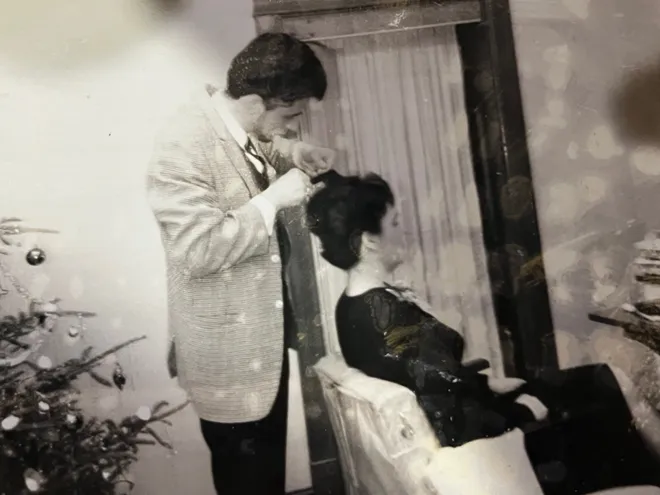
"My dad was a completely extroverted person," Garshon said. "He loved to go to, like, 7-Eleven and we would be sitting in the car and I would say 'See that guy standing outside, I bet you $5 you won't talk to that guy up there' and he was like 'Of course I will'...so he would go out there and talk to the guy for a couple of minutes," he reminisced. "That was just like a silly thing that was so mind-blowing for me because he could talk to anybody. But that was just kind of his personality."
His dad had other endearing quirks too, Garshon explained, like collecting items on the roadside, enjoying the occasional scratch-off ticket or dedicating himself to driving his wife around everywhere she needed to go.
"He loved to talk to people, loved the grandkids," he said. "Just a super duper people person. Even if he was going to the grocery store for a couple of items, my mom would always get mad because he'd be gone for, like, an hour and a half because he'd be in there talking to every single person because he knows everybody."
'I never really got to say goodbye'
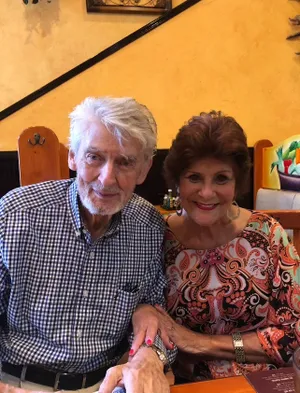
On July 8, Garshon got a call from his mother while he was in a different city on contract work. She said his father was having trouble breathing and they were headed to the emergency room. He was admitted for a hospital stay there, during which Garshon was able to speak to him a few times on the phone.
"I remember saying 'You need to hurry up and get home because, you know, I just started this job and you're not dying today' or 'You're not gonna die in there,'" Garshon said.
A few days later, on July 10, the medical staff considered sending Morgenstein home but Peggy told her son she didn't think it was a good idea to do so. They decided to stay. From there, Garshon said, things went downhill quickly and his dad was soon transferred to the ICU.
"They couldn't figure out what was going on with him, and they tried to do a bunch of different tests and then they started doing blood cultures," he said. "So then it came back with a listeria and meningitis and I was like 'what the heck is that?'"
USDA and CDC investigation documents and medical records reviewed by USA TODAY confirmed that Morgenstein tested positive for meningoencephalitis, a condition characterized by inflammation and/or infection of the meninges and brain, and bloodstream infection/sepsis.
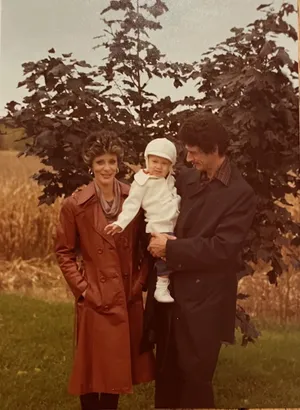
Further testing confirmed the presence of Listeria monocytogenes. Both conditions were attributed as "Listeria meningoencephalitis/sepsis," meaning they were caused by the presence of the listeria pathogen, according to medical and investigative records. The mode of transmission was marked as foodborne.
The records also indicated some other underlying conditions. A copy of Morgenstein's death certificate reviewed by USA TODAY listed his immediate cause of death as Listeria meningoencephalitis.
After finding out what his father was suffering from, Garshon and his family began combing back through his father's diet, trying to identify what could have delivered the pathogen. Many of these details were also listed on investigation records.
He was a fan of bagels and lox, cheese and only purchased Boar's Head deli meat. After Googling his father's diagnosis, Garshon came across a notice of the Boar's Head recall and the family began looking back through grocery receipts.
It was then they discovered that Morgenstein had purchased recalled Boar's Head liverwurst that matched the purchase-by date, lot number and production and consumption timeline of the outbreak. In the meantime, Morgenstein continued to deteriorate. He was given antibiotics but lost most of his ability to communicate, save for a few head nods and shakes.

Nearly 10 days in, doctors delivered the unfortunate news that even if he were able to pull through this, Morgenstein would have extensive and permanent damage that would require round-the-clock care. He would "no longer be the person" his family knew.
"My mom couldn't keep sitting there, watching him suffer anymore," Garshon said. "And that was that. I think if he was a little younger, it might have been something that he would have been able to beat."
"I never really got to say goodbye when he was coherent," he added.
Morgenstein died on July 18, 2024, 10 days after entering the hospital.
Health officials link third death to Boar's Head listeria outbreak
Health officials sent blood samples taken from Morgenstein to the CDC, which uses these samples to trace an illness's origin.
A CDC spokesperson told USA TODAY that the CDC and state health departments use advanced laboratory methods, called whole genome sequencing, to determine if the listeria from a sick person is the same listeria making other people sick over the same time frame.
"State health departments verify death certificates and medical records for the cause of death to determine if a person’s foodborne illness led to them passing away. CDC only reports deaths in foodborne outbreaks if those deaths have been deemed attributable to the foodborne illness," the spokesperson said.
The CDC reported Morgenstein as the third confirmed death linked to the ongoing listeria outbreak on Aug. 8.
Boar's Head responds to illnesses, deaths
Boar's Head issued the following response to USA TODAY.
"We deeply regret the impact this recall has had on affected families. No words can fully express our sympathies and the sincere and deep hurt we feel for those who have suffered losses or endured illness.
We are conducting an extensive investigation in partnership with leading food safety experts to determine how our liverwurst produced at our Jarratt, Virginia facility was adulterated and to prevent it from happening again.
As soon as we learned of a possible health risk with our liverwurst, we immediately and voluntarily recalled it and then expanded our recall out of an abundance of caution to include additional products made at the same plant over the same period of time. We have paused production at this facility and will not resume until we are confident that it meets the standards our customers expect and deserve. Consumer health and wellness are, and always have been, our top priorities."
The human toll
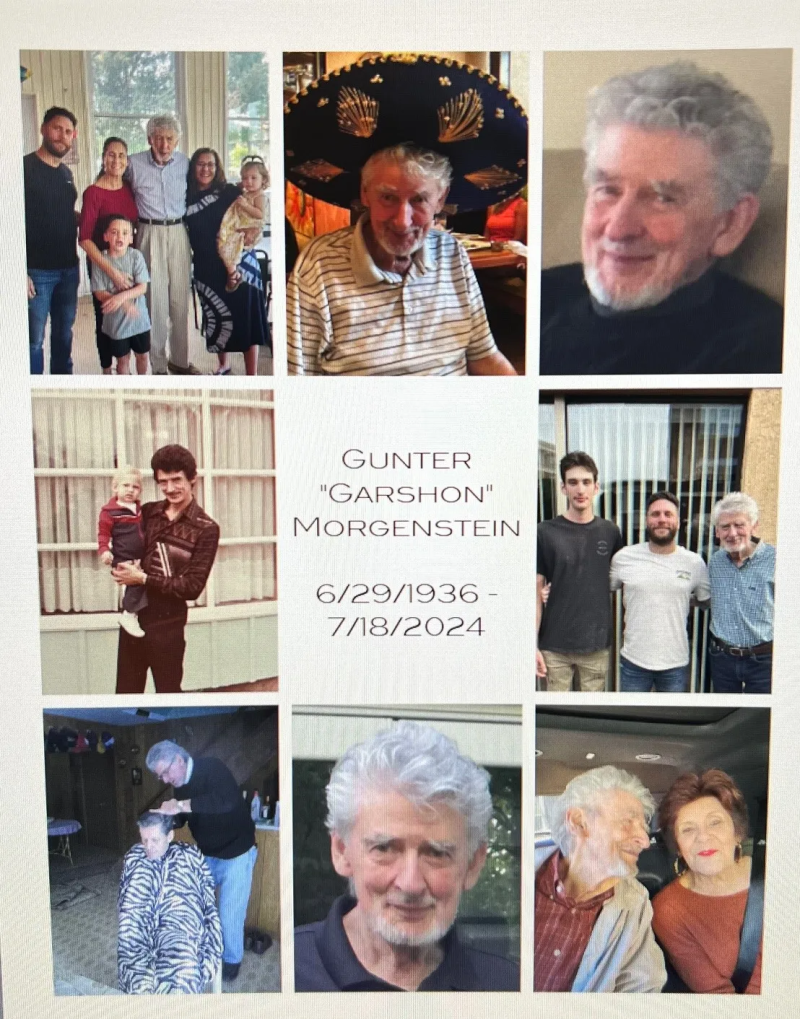
The CDC told USA TODAY that recalls of this kind may seem more common than in the past because we have better methods of testing. Outbreaks themselves may not be on the rise, according to health officials, but the improved testing and tracing means widespread recalls and notices of foodborne illness and beyond certainly have been.
With a slew of warnings dominating headlines almost daily - from baby formula and deli meat to airbags and candles - the alarm bells can soon become another thrum in the background of our lives; ever-present but easy to forget.
But for families like the Morgensteins, those passing headlines represent something they can never recover − the immeasurable human toll − the one that can't be quantified by a data set, an infographic or even a rising death toll.
"(My dad) grew up in the Holocaust, so obviously he was a Holocaust survivor and that's part of the irony of the whole thing," said Morgenstein. "Surviving something like that as long as he did, you know, only to (meet his end) by deli meat."
The family is seeking legal action related to Morgenstein's death.
Anthony Coveny of Ron Simon & Associates, the office handling the family's case, told USA TODAY the firm has represented thousands of victims of foodborne illness, estimating the number of yearly food poisoning illnesses in the U.S. at 48 million, with about 3,000 of those dying as a result. These statistics are likewise reported by the USDA.
What is the solution? If you ask Coveny and like-minded litigators, it's strict adherence to good manufacturing practices, known in the industry as GMPs, and steep payouts to victims when they're not followed. The CDC and regulating agencies focus on identifying, tracing, tracking and sourcing down the origins of spreading bacteria and advice on what foods not to eat.
The USDA and lawmakers look towards legislation for a solution, while environmental and animal activist groups decry the state of food production and consumption, specifically through the lens of animal-derived products, as a whole.
Whether a talking point on a politician's track record, a success story on a lawyer's website or a truly monumental breakthrough in food science, one fact remains: no solution is as valuable as one that one that saves human lives.

As for the Morgensteins, any progress will be welcomed, even if it is supremely bittersweet. And even if that colossal change isn't imminent, Garshon said there's one thing he knows for sure: his dad would want his story shared.
"He would have wanted this, his story told," said Morgenstein. "So I just have to try to be his voice."
Morgenstein's spirit was powerful enough to convince even his introverted son to pick up the phone and try his damnedest to remind people it's not about how the story ended, but about how his dad lived it.

Toward the end of the interview, Garshon was asked to sum up his dad in just a few words.
A long pause, a tear, a glance at the sky, as if waiting for one final answer from the dad who seemed to know it all.
"Somebody who I wish I was more like," he finally said. "Just a really good person."
Disclaimer: The copyright of this article belongs to the original author. Reposting this article is solely for the purpose of information dissemination and does not constitute any investment advice. If there is any infringement, please contact us immediately. We will make corrections or deletions as necessary. Thank you.



